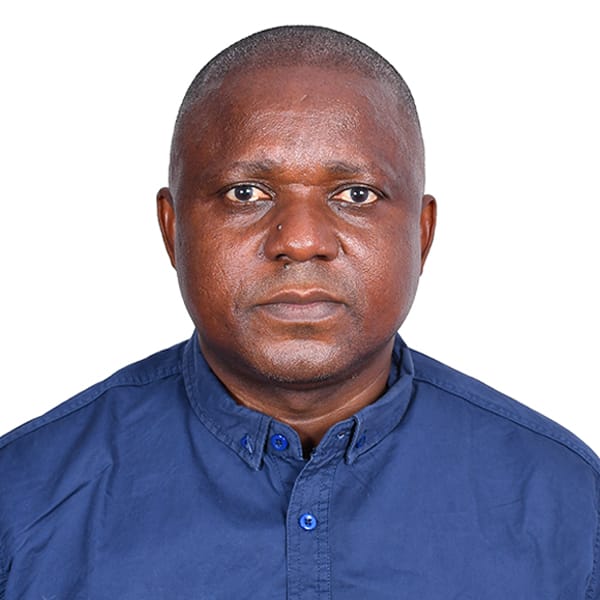 Victor Bwire./HANDOUT
Victor Bwire./HANDOUT
We need to make talent pay and appreciated in this country through a structured system.
People are born with talent, which must be identified early, nurtured, and be professionalised, so that the talent holder benefits.
We have not invested in talent searches in our country, and for that save for athletics, many youths waste their talent largely because of frustrations.
Though attempts have been made to mainstream sports in national development, especially those geared towards poverty reduction, much remains to be done to professionally manage this otherwise big business in Kenya.
While a lot of money is invested by the national government, county government, CDFs, well-wishers, and political aspirants across the country, especially on sports, it always ends there at the publicity level, with the participating youths remaining just mere participants.
See the motivation the national team is showing following the
training and cash promise from the President, as also seen with the Tanzania
and Uganda national soccer teams.
The many sports tournaments are organized as an end in themselves, instead of providing avenues for the talented youth to be recruited to move to the next levels.
Even the various schools and college sports tournaments are done poorly, where many of the people taking part being hired and overage, no scouts present to tap the talent, and they end at the winners getting a few shillings, that they divide among themselves on the spot and wait for the next tournament, poor and broke.
Elsewhere, where there is structured scouting and recruitment of sports guys, opportunities to join college/university sports teams or linkages with teams especially in the Arab countries, the talented youth could do wonders.
Even with a sports policy in place, the country seems unable to solve the unending challenges in this otherwise very potential sector.
The talent centers, which the sports policy talks about, and many of the county governments always promising to establish talent centers, that have always remained a pipe dream.
Guys would rather deal with the youth through the youth economic empowerment publicity events rather than invest in connecting talented youths with the outside through professionally managed Programmes.
The sector is run based on personality, cartel-like models and focused on enriching the leaders rather than the sports people.
It is still run as an extractive industry with very little focus on talent search, nurturing and promotion of sports as a business, and source for direct foreign investment for the country, but cash for those in leadership positions, who rarely care about the players.
The sports sector, especially the various associations and events, are marred with confusion, corruption, cartel-like behavior.
For that reason, and given the popularity of sports in Kenya, many in the political arena use it to seek votes from the youth than mean anything serious.
While in other countries sports is used to offer opportunities to the youth, and many use to get employment, income generation, academic scholarships, protect the youth from violent extremism and ideologies, environmental protection and staying healthy programs, in Kenya, sports rarely resemble a sector that can be helpful opening investment opportunities for the country.
One of the reasons we end up with unscrupulous people getting positions in sports management is the unclear membership and secrecy that surrounds the election processes in the respective associations.
People must be empowered to understand what these associations stand for, their relationship with the government, how the funds generated are spent and what measures members can take in cases of misuse of funds.
Elections in the associations must be transparent, democratic and participatory for sports to become meaningful to Kenyans.
The demand for accountability and transparency in sports management, just like in any other business—who are major partners in sports is unstoppable.
The various sponsors in the sports sector should also demand accountability, including proactive information disclosures in their contracts with sports associations.
The sports sector, if well managed, has great potential to create employment for the youth and play a serious role in poverty reduction.
More attention should be given the nurturing talent, both in formal schooling system and informal settings targeting scouting, recruiting and mentoring talented youth, who are then connected with sporting entities outside Kenya—after a thorough professionalization program, including physical fitness, medical, discipline and financial literacy sessions that are basic requirements for moving talent to the next level in your life.
We should also encourage the youth to take courses in sports management both in universities and TIVETs, so that we generate the next sports leaders, so that we professionalize sports.
In addition to ensuring sports, as a skills-based activity, which our education system encourages can be used to mobile community support and youth participation in environmental protection including tree planting, creation of income-generating activities, and for attracting big investment in terms of sports advertising, talent search and infrastructure development.
We cannot just continue loving sports and sporadically appearing in stadiums when it's fashionable, as its now with CHAN25, or when talking about building stadiums, but look at sports as an investment that pays for that who have the talent and are willing to professionalize it.











